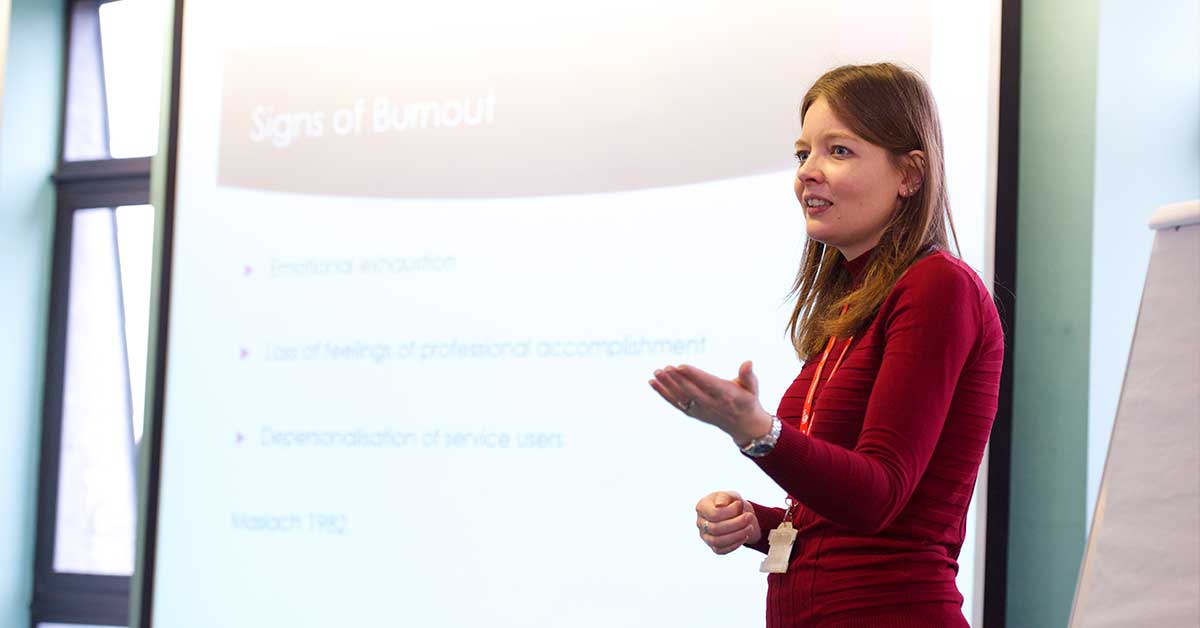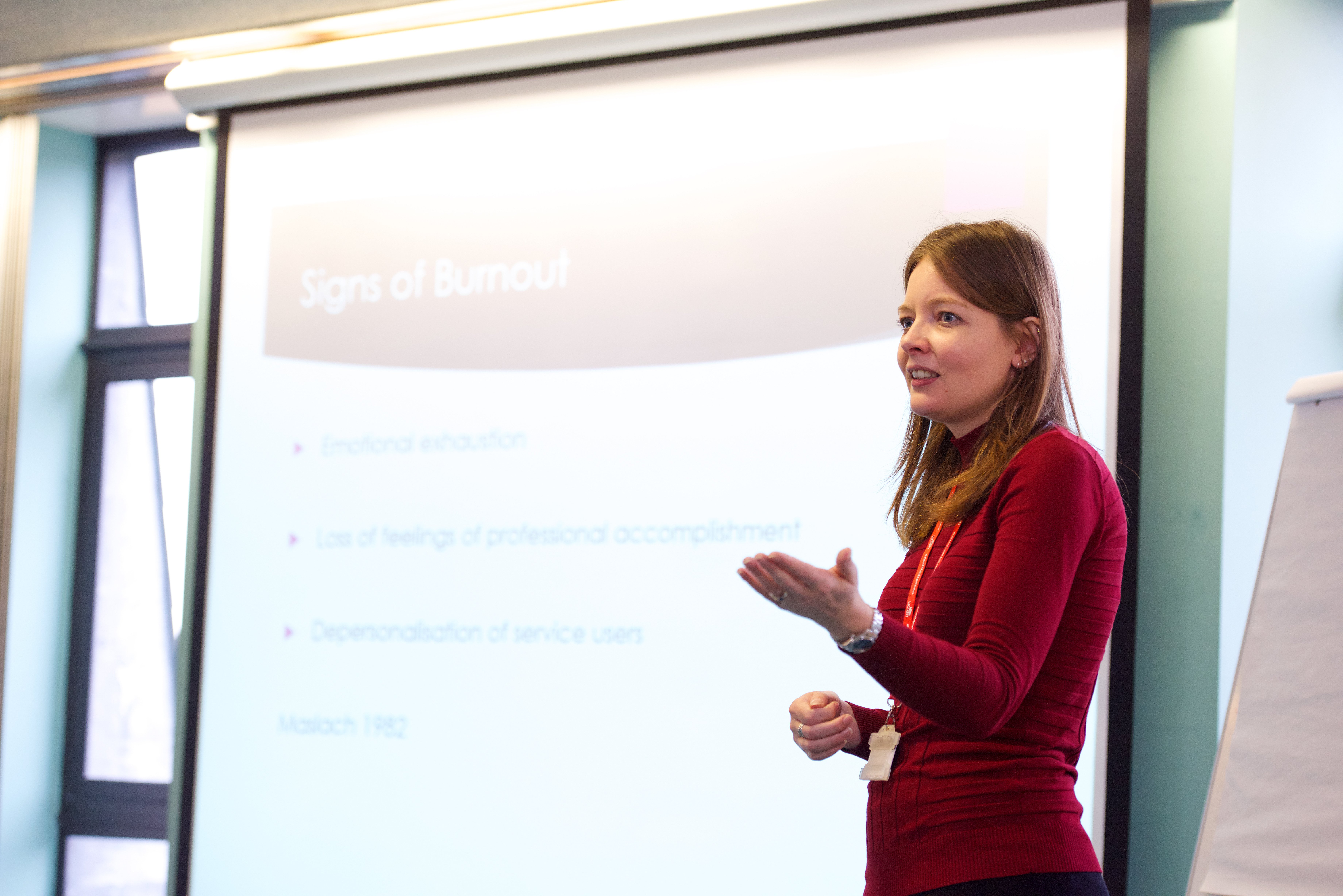-1.jpg)
Can a master’s in social policy help me get into the charity sector?
Whether motivated by a desire is to give back to the community, help others or simply make a difference in the world, more people are choosing to work for charities, non-governmental organisations (NGOs), voluntary groups and other non-profit making organisations.
The ‘third sector’ offers a rewarding career that could take you all over the world. Read on to see why the MA Social Policy could be just the ticket you need to start your adventure!
Develop useful skills
According to charityjob.co.uk, the UK’s largest specialist website for the charity sector, there are five top skills that look great on your CV when looking for charity work, and our MA Social Policy has got them covered.
1. Digital knowhow: In today’s digital world, employers everywhere demand digitally savvy professionals. Studying and conducting research online will develop valuable digital skills to record progress and evidence your work. This not only increases your digital competence, but also sharpens your independent learning.
2. Communication: Being able to communicate with confidence, clarity, tact, and empathy, particularly in sensitive situations, is crucial for charity work – whether speaking to a beneficiary, writing a funding bid, or presenting a project plan to a potential donor.
Through tutorials, presentations, projects, seminars, essays and assessed work, such as your dissertation, you will refine both your verbal and written communication skills to the higher standards expected of a postgraduate.
3. Leadership: To be a successful leader requires confidence, effective communication, good organisation, and the ability to motivate others; the same skills needed to succeed at distance learning.
It demonstrates self-discipline, exceptional organisation skills, efficient time management, working to deadline and successfully multi-tasking. Through project and group work, you will become comfortable communicating remotely with people you do not initially know.
You will also learn to encourage and support your peers (and vice versa), building an international network of contacts at the same time.
4. Data analysis: The ability to turn volumes of data into the intelligence that informs effective decision making is essential within the third sector, from analysing past outcomes and feedback to forecasting future scenarios and determining how to make the best impact.
On this course, you will produce and evaluate various sources of data and research for practice in social care, considering both qualitative and quantitative approaches.
5. Teamwork: All employers want staff who can cooperate, solve problems and work in teams. When you study with us online, you will work alongside brilliant, like-minded students from across the world with the same passion for the subject as you.
You will be able to share your experiences and get to know each other through various forums, webinars, and groupwork.
How does social policy differ from social work? Explore our handy guide:
Expand your knowledge of social issues
During your MA Social Policy studies, you will explore the dynamics of social policy developments from an international point of view.
This includes how social policies around the world address key welfare challenges; from corruption, poverty, social inequality and changing family structures, to unsustainable development, the impact of climate change and globalisation.
When you graduate, you will be able to demonstrate greater awareness and understanding of the social issues which drive non-profit work, often directed towards activities such as health care reform, welfare, education, improving employment opportunities or child welfare.
This insight is especially relevant now that public authorities increasingly contract out services delivery to private or voluntary sector organisations.
In the UK, for example, St John’s Ambulance supports emergency call outs in England, the British Red Cross’ home from hospital discharge scheme supports patients in Wales and the Citizens Advice is one of the country’s most popular legal advice services.
You could choose to specialise in areas which particularly interest or concern you. For example, housing social policy could lead to roles working for a housing charity or as a government housing policy officer.
Alternatively, a focus on law, security and criminal justice policy making is ideal for careers with organisations and charities set up to protect human rights and democracy.
Your career options are by no means restricted by national borders, since the global perspective you gain on this degree will prepare you for opportunities in international development with the following types of employers:
-
International NGOs such as Save the Children, Partners in Health, Transparent Hands or Médicins sans Frontières
-
International development consultancies and organisations like the International Monetary Fund, World Bank, Oxfam International, World Food Programme (WFP), UNICEF or the United Nations Development Programme (UNDP)
-
Government aid agencies, such as UK Aid or the Legal Aid Agency, the French Development Agency (AFD) or United States Agency for International Development (USAID)
Get the expertise needed to establish a successful career in social welfare provision and public service with our MA in Social Policy. Choose from three start dates a year:
Related resources
See all resources
Key skills to succeed in social policy
Gain insight into the key skills you need to succeed in a social policy career, and discover how an...
Read the story
Social policy and economic policy: What’s the difference?
Discover the differences between the two key policies, as well as real-world examples of the impact...
Read the story
How do different countries address social reform?
Discover how different countries tackle social reform in this insightful blog post. Explore case...
Read the story
